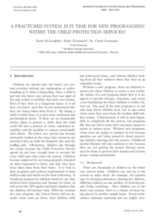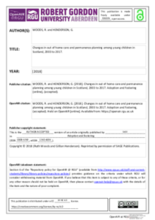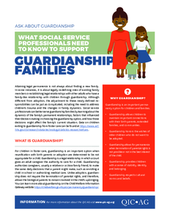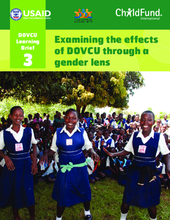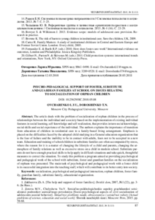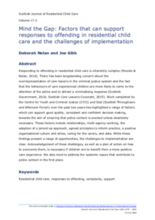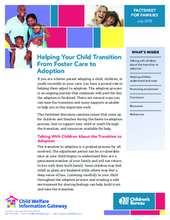Displaying 1371 - 1380 of 2221
This article explores current child protection services and programs in the United States and offers suggestions for development of new child protection programming to further meet the needs of vulnerable children.
The current study addressed gaps in research on early out of home care and permanency planning through a comparison of two samples of children in Scotland: 110 children born in 2003, and 117 born in 2013, all of whom were placed under compulsory measures of supervision prior to three years of age.
This guidance is designed for social service professionals to better serve guardianship families by learning about the dynamics of the family’s permanent relationships, factors that influenced their decision-making in choosing the guardianship option, and how those decisions might affect the family’s current situation.
This learning brief analyzes quantitative data from both households at risk of separation and reintegrating households to understand how the “Deinstitutionalization of Orphans and Vulnerable Children Project in Uganda” (DOVCU) package of integrated social and economic interventions affects children and households differently depending on the sex of the child, caregiver, and/or household head.
This volume is an effort to highlight best practices for children without parental care.
The article deals with the problem of socialization of orphan children in the process of relationships between the individual and a society based on the implementation of existing individual features in social learning, self-knowledge and self-realization, that provides in turn social knowledge, social skills and social experience of the individual.
This article highlights a range of factors which can support good quality, consistent and confident decision making, towards the aim of ensuring that care leavers' contact with police is avoided unless absolutely necessary.
The aim of the article is to describe the system of the substitute family care in the Czech Republic and to introduce a foster care as one of the institutes of the substitute family care.
This factsheet for families offers tips for helping a child transition from foster care to adoption.
This paper examines the post-compulsory educational pathways of young people who have spent some or all of their childhoods in local authority.

